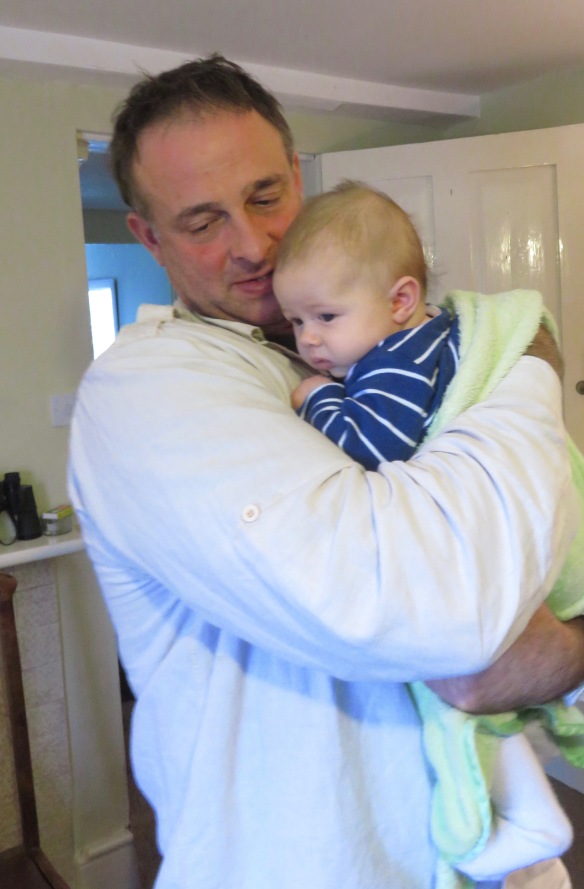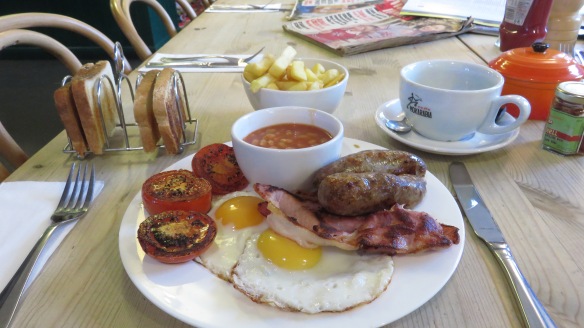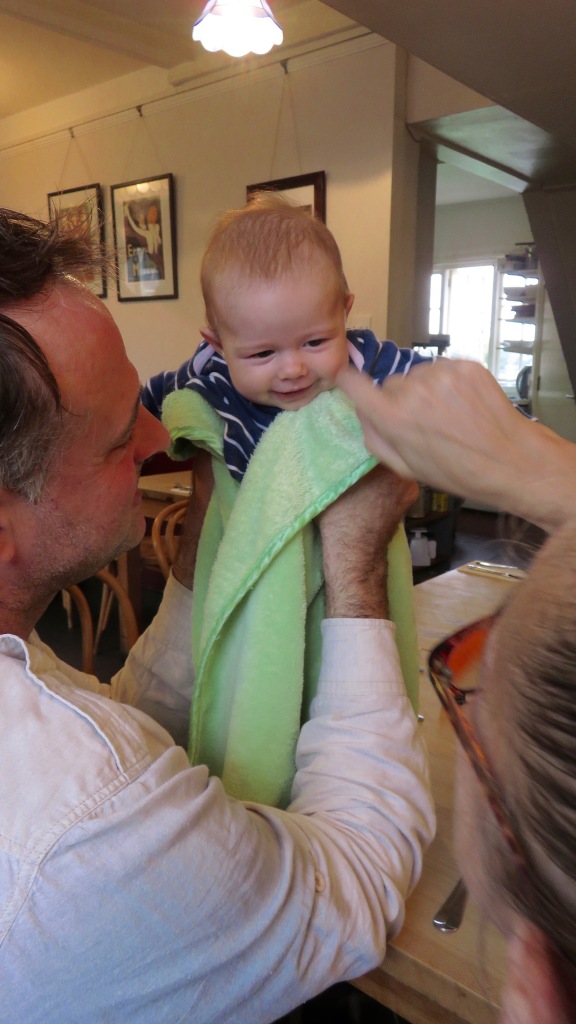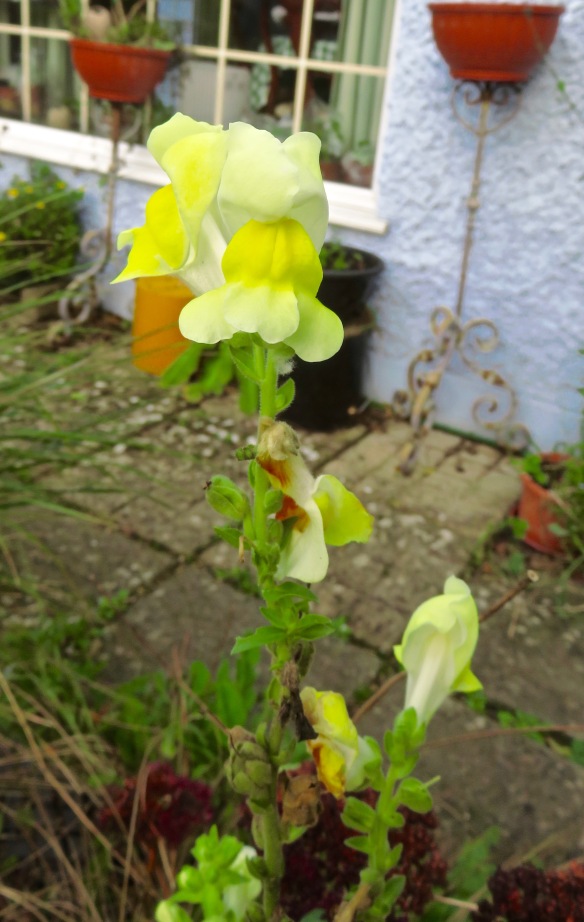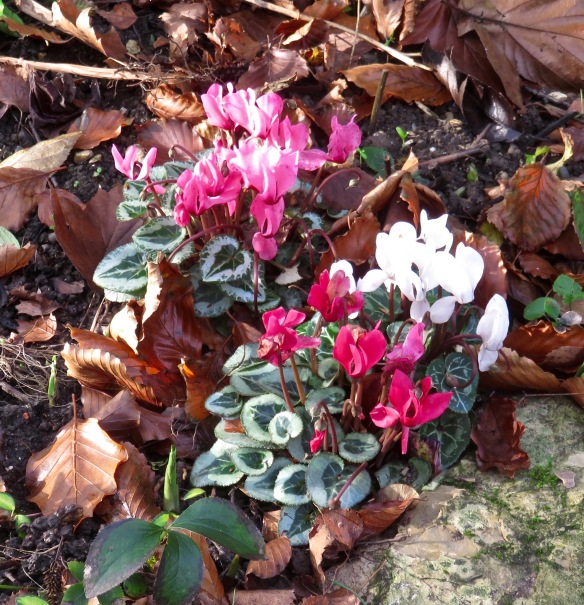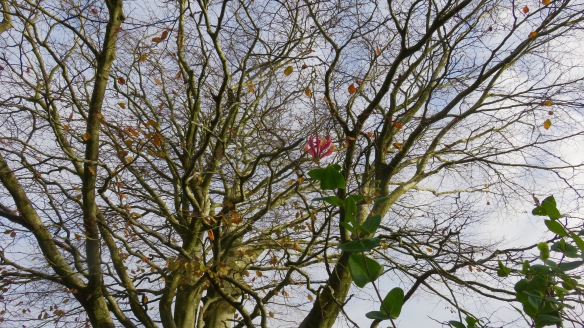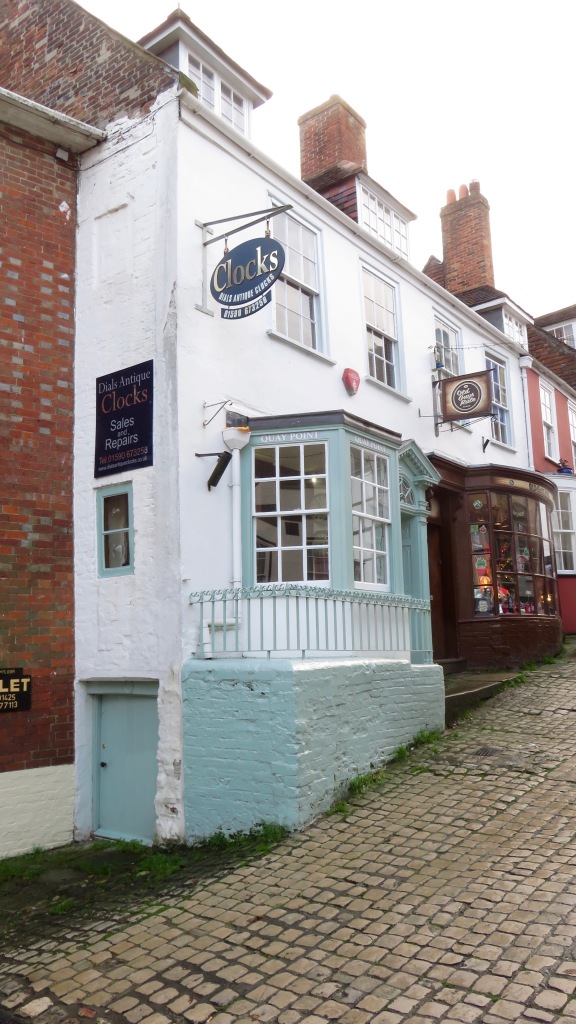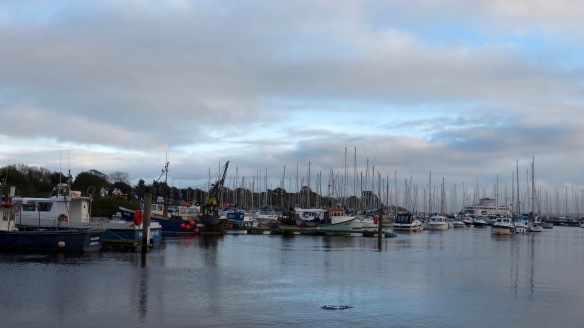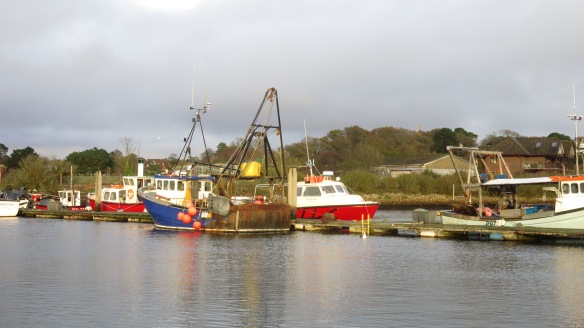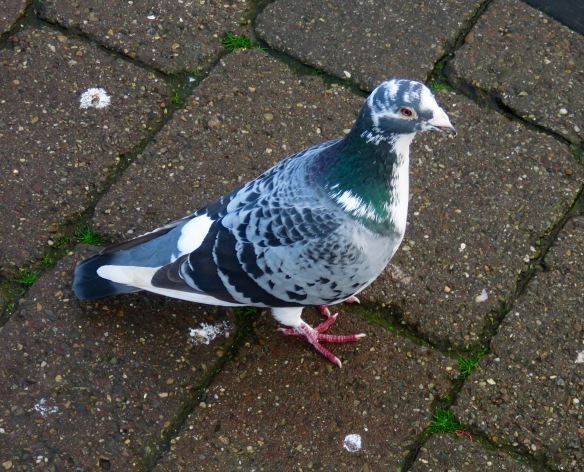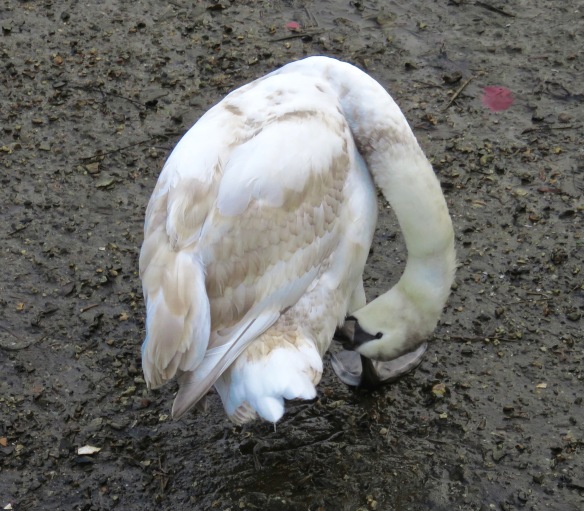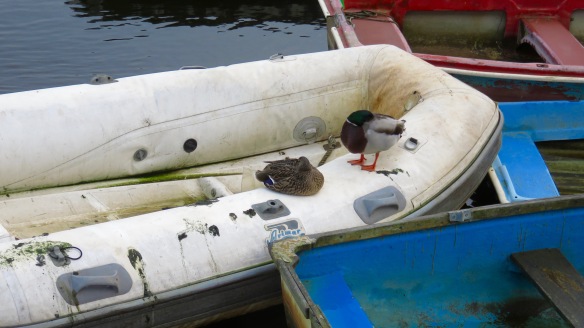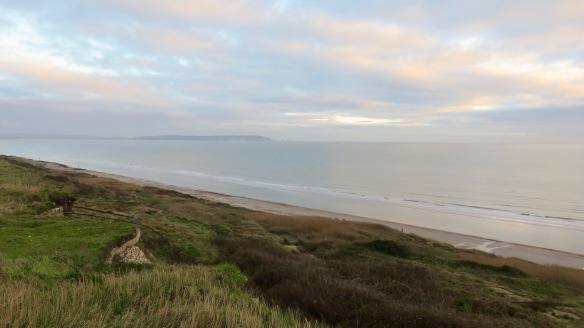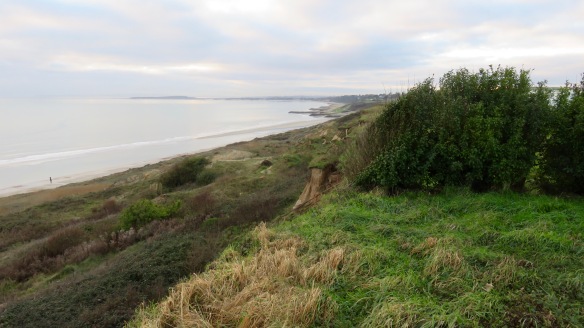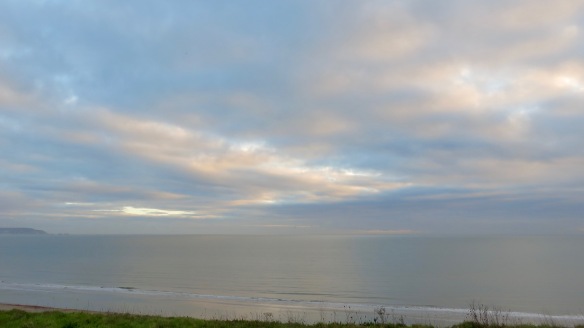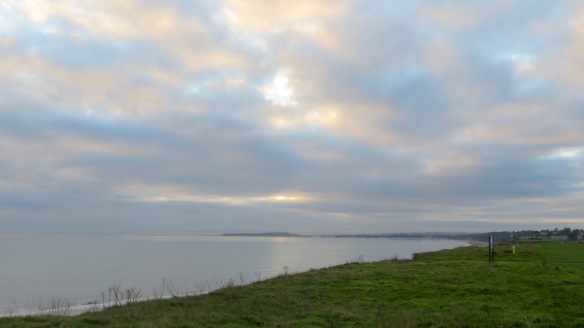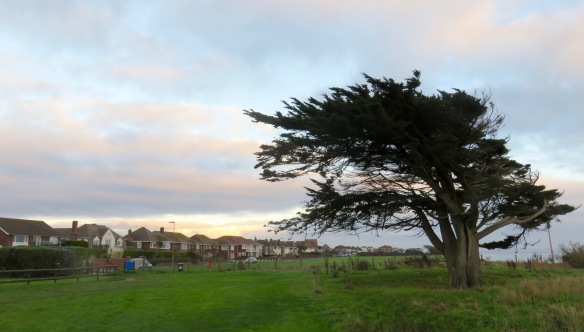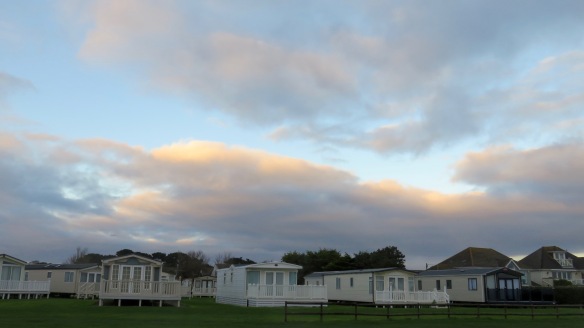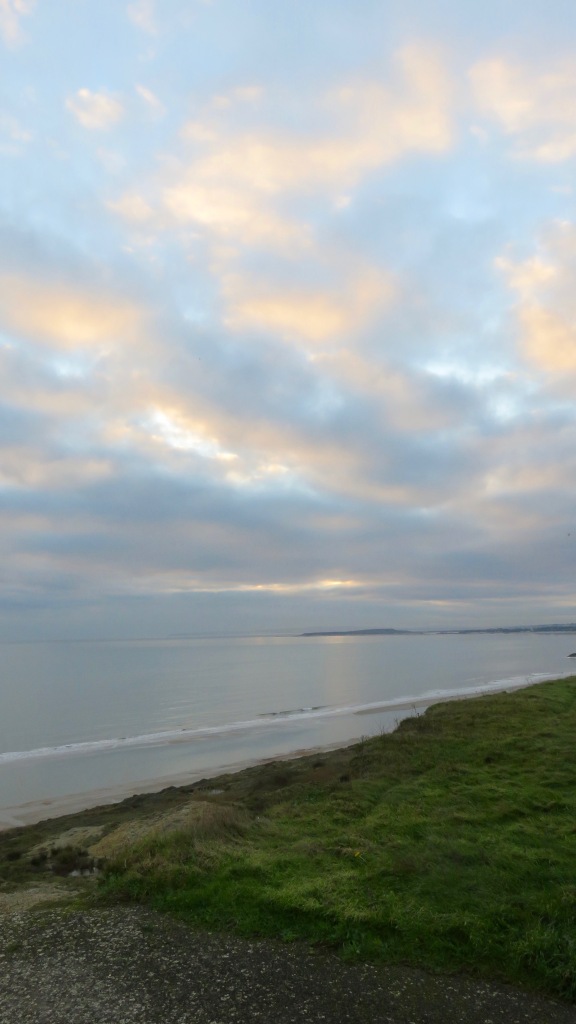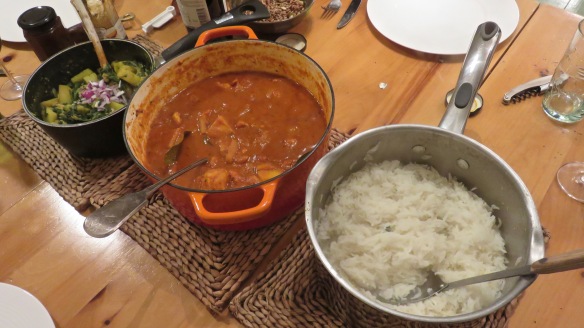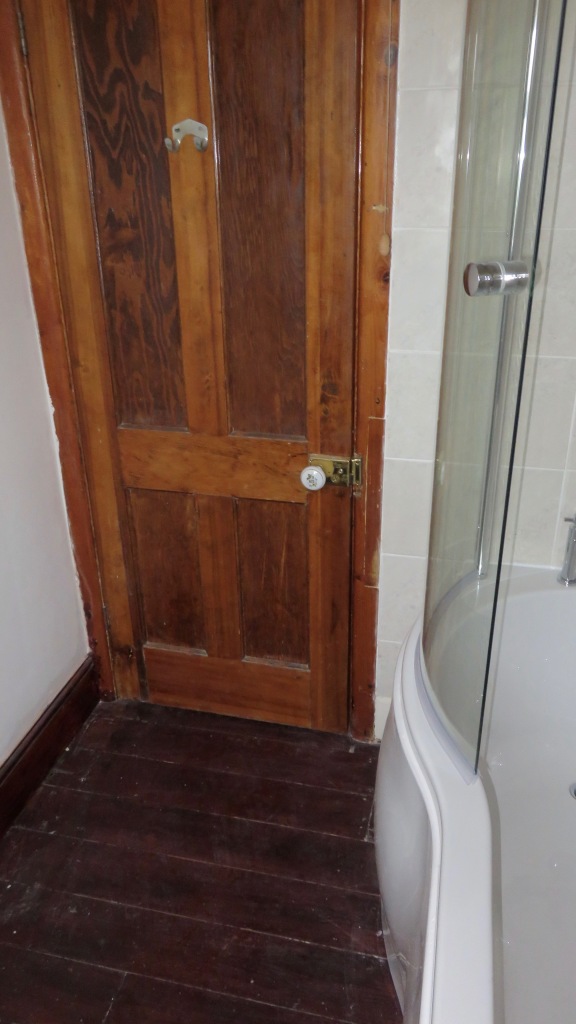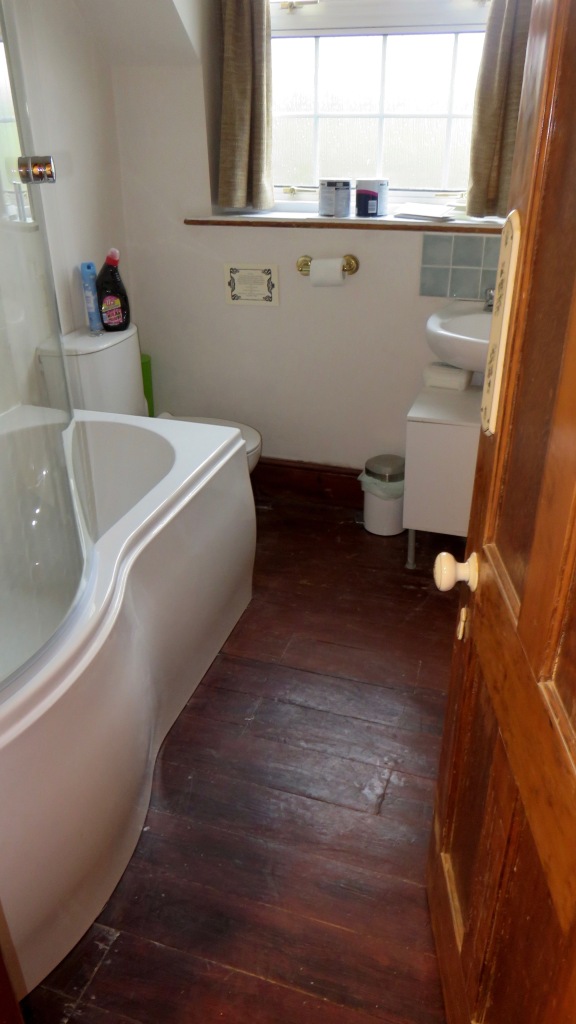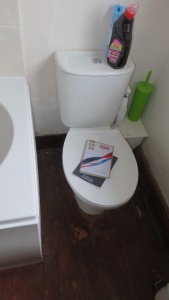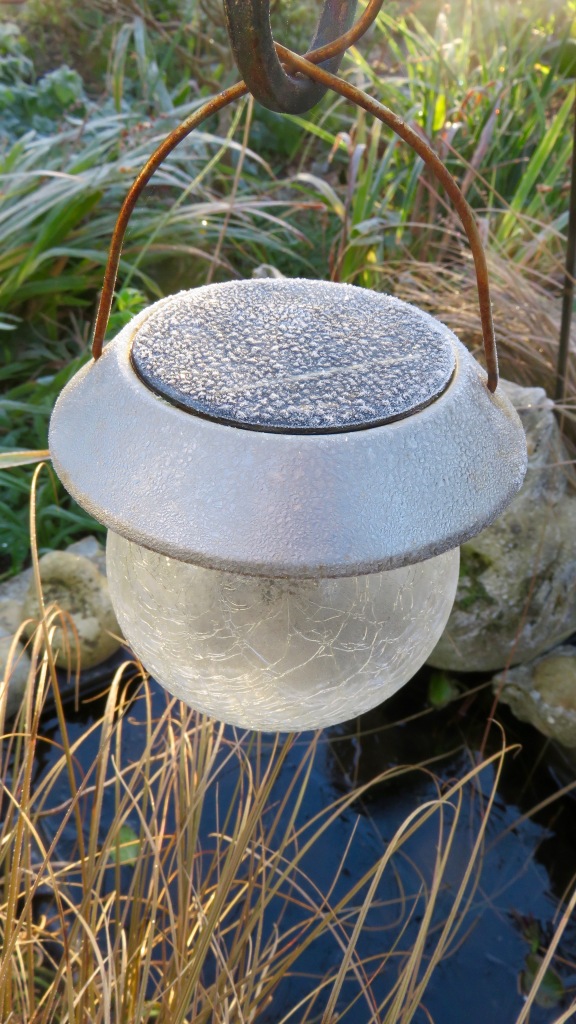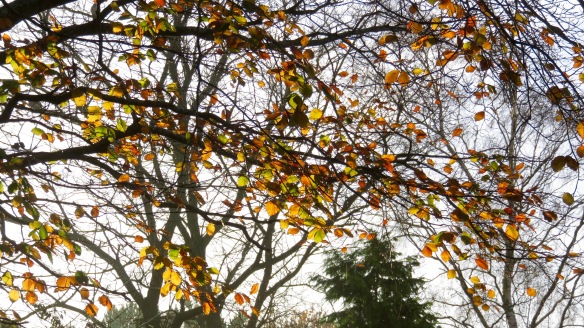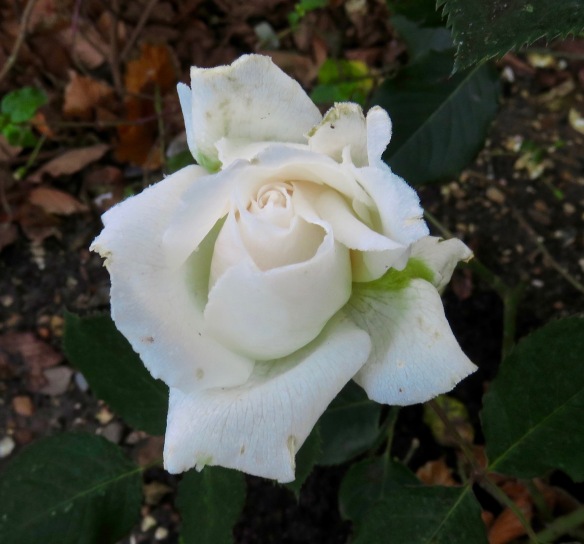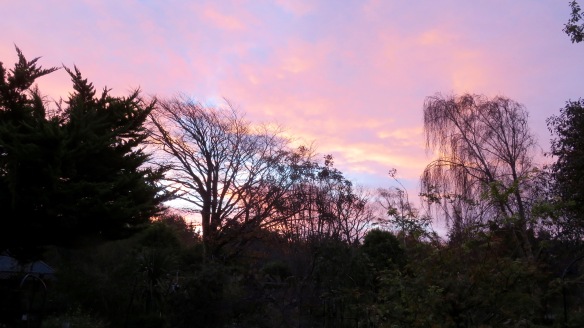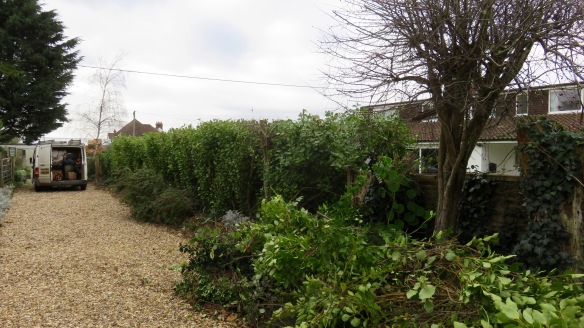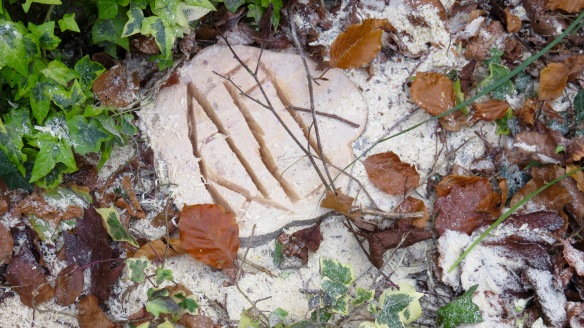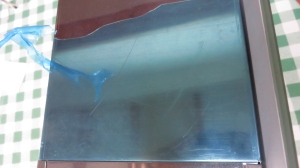 Aaron began redecorating our guest bathroom this morning. The wall-hanging cabinet was a typical piece of DIY from our predecessors in that the blue protective plastic film still adhered to the item, which had been secured by just two of the required screws. Aaron took it down, I painstakingly peeled off the film that felt as if it had been fixed with the spray mount I have been using on the garden album photographs.
Aaron began redecorating our guest bathroom this morning. The wall-hanging cabinet was a typical piece of DIY from our predecessors in that the blue protective plastic film still adhered to the item, which had been secured by just two of the required screws. Aaron took it down, I painstakingly peeled off the film that felt as if it had been fixed with the spray mount I have been using on the garden album photographs.
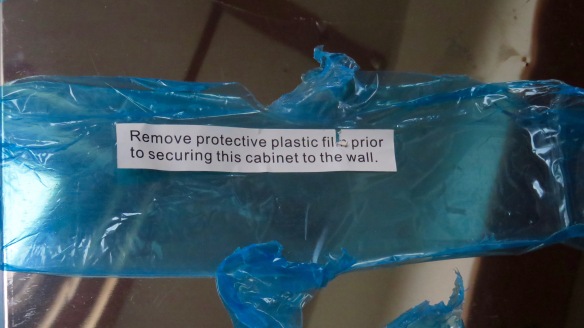
The sign on the back of the cabinet had been ignored.
Together, Jackie and I polished up the surfaces with Hob Brite.
The day’s warm weather was belied by the trees, tresses tossed, sashaying violently in the tempestuous winds of storm Clodagh, making it impossible for us to finish putting the rose garden to bed.
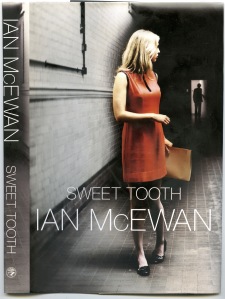 ‘The Cement Garden’ from 1978 was, I think, the first of Ian McEwan’s novels I read. It introduced me to the author’s penchant for the gruesome. For that reason I have always been rather ambivalent about this excellent writer now surely at the height of his powers. His eloquent, smooth, prose is most compelling, but his tales often grim. Nevertheless ‘Sweet Tooth’, which I finished today, is difficult to put down. For some, the period of the Cold War and the energy-saving three-day week, may cause the work to be classified as historical. I, however, was entering my fourth decade in 1972. I can therefore vouch that McEwan brilliantly encapsulates the mood of the time.
‘The Cement Garden’ from 1978 was, I think, the first of Ian McEwan’s novels I read. It introduced me to the author’s penchant for the gruesome. For that reason I have always been rather ambivalent about this excellent writer now surely at the height of his powers. His eloquent, smooth, prose is most compelling, but his tales often grim. Nevertheless ‘Sweet Tooth’, which I finished today, is difficult to put down. For some, the period of the Cold War and the energy-saving three-day week, may cause the work to be classified as historical. I, however, was entering my fourth decade in 1972. I can therefore vouch that McEwan brilliantly encapsulates the mood of the time.
The work is not really a political or spy story. It is a love story which reflects the author’s often rather grim take on human relationships. The device of novels reported within the novel is intriguing, and cleverly done. Love him or hate him, McEwan is never boring, and always worth a read.
My one grouse is that the paper in this hardback, published by Jonathan Cape in 2012, is already turning brown.
I probably don’t need to explain The Cold War, but it may be helpful to quote Wikipedia on the three-day week, which ‘was one of several measures introduced in the United Kingdom by the Conservative Government 1970–1974 to conserve electricity, the generation of which was severely restricted owing to industrial action by coal miners. The effect was that from 1 January until 7 March 1974 commercial users of electricity were limited to three specified consecutive days’ consumption each week and prohibited from working longer hours on those days. Services deemed essential (e.g. hospitals, supermarkets and newspaper prints) were exempt.[1] Television companies were required to cease broadcasting at 10.30 pm during the crisis to conserve electricity.’
On 23rd September this year the Independent reported that: ‘The prospect of the three-day week returned to haunt Britain yesterday as it emerged that ministers are considering paying firms to cut hours in order to survive the recession’; and, as we near the end of 2015, trust between the East and the West is once more at a low ebb.

This evening we dined on one of Jackie’s more than just a Spanish omelette, stuffed with almost anything you could think of and topped with mature cheddar cheese. This was served with chips and baked beans, and followed by sticky toffee pudding and custard. I drank Seashore Isla Negra merlot 2014.

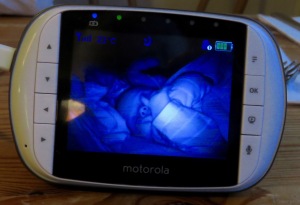


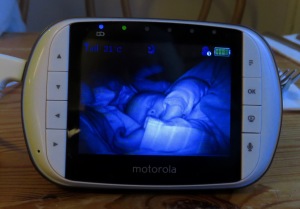



 Tess was able to give her baby an afternoon feed and pop her into bed for a brief sleep. They have a baby monitor produced by motorola. This enabled us to mind Poppy remotely. We could see her, and she could hear us.
Tess was able to give her baby an afternoon feed and pop her into bed for a brief sleep. They have a baby monitor produced by motorola. This enabled us to mind Poppy remotely. We could see her, and she could hear us.